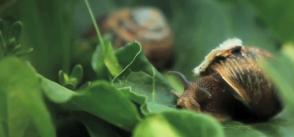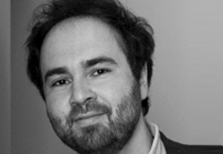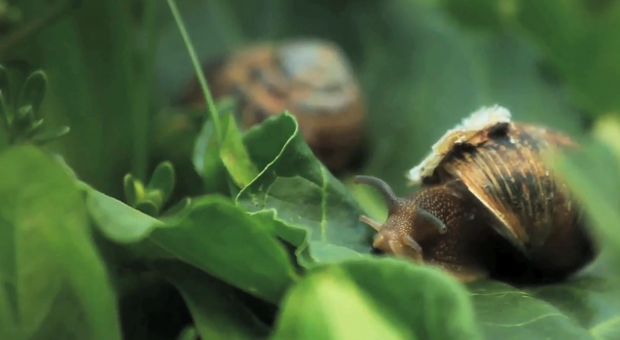
Combining theory and practice: interview with Pavlos Georgiadis
Pavlos Georgiadis is a multifaceted professional.
He studied Biological Sciences, he holds a MSc in Biodiversity & Taxonomy of Plants, a Msc in Environmental Protection & Food Production and is currently a PhD Candidate in Rural Communication. He is the founder of the Convivium Slow Food Thrace and Greece Coordinator of the Slow Food Youth Network. Besides this, he looks after his family's olive grove and he is one of the co-founders of the startup “We Deliver Taste”, a bridge between producers and consumers. Curious to know more about his activities we posed him some question.
Pavlos, in your activities you managed to combine theory and practice, research and communication, professionalism and activism. We guess that what lies behind all this is passion. Is this right?
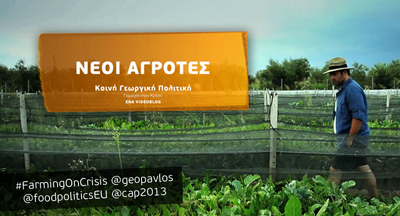 I think it is very important to look beyond traditional barriers. Never before has our world been so interdependent, therefore it is imperative to create connections between cultures of thinking and known disciplines. We are confronted with multiple and complex challenges, this is why it is important that science is communicated to the society in a professional manner that is capable of inspiring people to get active.
I think it is very important to look beyond traditional barriers. Never before has our world been so interdependent, therefore it is imperative to create connections between cultures of thinking and known disciplines. We are confronted with multiple and complex challenges, this is why it is important that science is communicated to the society in a professional manner that is capable of inspiring people to get active.I don't believe in "-isms", since they are creating dualisms, and dualisms create conflicts. Nowadays, in my belief, there is no more time for conflict. In view of climate change, biodiversity loss, hunger and resource depletion we need to act together and we need to act now. Especially on issues related to rural development and the environment, because they are very complex and diverse, it is time to rethink our fundamental values with respect to our food and our relation with the landscape.
This means positive change, and I guess it requires people with passion to bring it forward. But I think everything stems from my interest in exploring and explaining the natural world and how it interacts with humans.
It was about time that we Greeks re-discover our countryside, which is full of traditions, knowledge and beautiful landscapes. In my opinion, these are some of the very few assets-if not the only ones-that we have in order to get out of the economic crisis. And I am very glad that this understanding is infecting more and more people in Greece, especially the youth.
Of course, the film takes the example of young farmers in Greece in order to touch global challenges like food security and the environment. And it is very fulfilling to see that this dialogue is taking place across many countries and different audiences. The film is travelling around the world and together with it, a discussion about the future of our food is advancing.
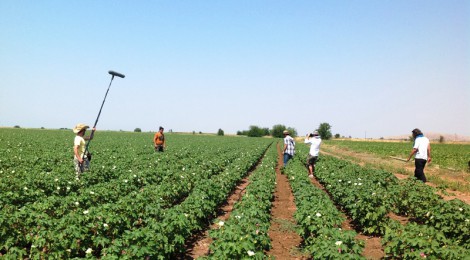 For the first time, despite its weak outcomes towards supporting ecological farming, the reform process of the EU Common Agricultural Policy was open to a public dialogue and the civil society. "Food Politics" was an opinion portal that was created in order to disseminate information about this process. "Farming on Crisis?" is a sequel to a similar videoblog produced by the Youth Food Movement in Holland, showcasing the stories of Dutch young farmers.
For the first time, despite its weak outcomes towards supporting ecological farming, the reform process of the EU Common Agricultural Policy was open to a public dialogue and the civil society. "Food Politics" was an opinion portal that was created in order to disseminate information about this process. "Farming on Crisis?" is a sequel to a similar videoblog produced by the Youth Food Movement in Holland, showcasing the stories of Dutch young farmers.Today, more than ever before, there is a need to connect the food system in ways that are fair and transparent. I agree with your Position Paper that the focus should be on small scale farmers, who are the backbone of Europe's rural economies. They are the ultimate managers of the land, producing quality food, keeping the traditions alive and stewarding the rural landscape in the Mediterranean region. Water, access to nutritious food and energy have to be on top of the agenda.
To these priorities, I would also add strategies related to the protection of our soils. The social and cultural dimensions of agriculture are also not to be missed. In the Mediterranean region, a focus on regenerative, ecologically functional agriculture can show the way out of the crisis. Good taste and the pleasure of good food can bring communities together -especially youth- allowing them to regain a sense of control and dignity over their future. In view of the current economic crisis, this is very important.
And this process can occur despite policies of austerity that are dismantling core societal values in countries like Greece.
A strong food movement is central to the future of Europe. And given political support, it is something that could potentially evolve into something very powerful. But in the absence of political sense, we citizens will have to continue building it by ourselves.
This is the first episode of "Farming On Crisis?" All the episodes are on vimeo.
Videoblog on CAP | Episode 1: Food Security from foodpolitics on Vimeo.
